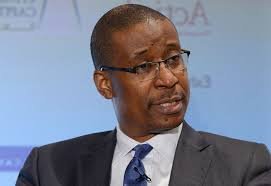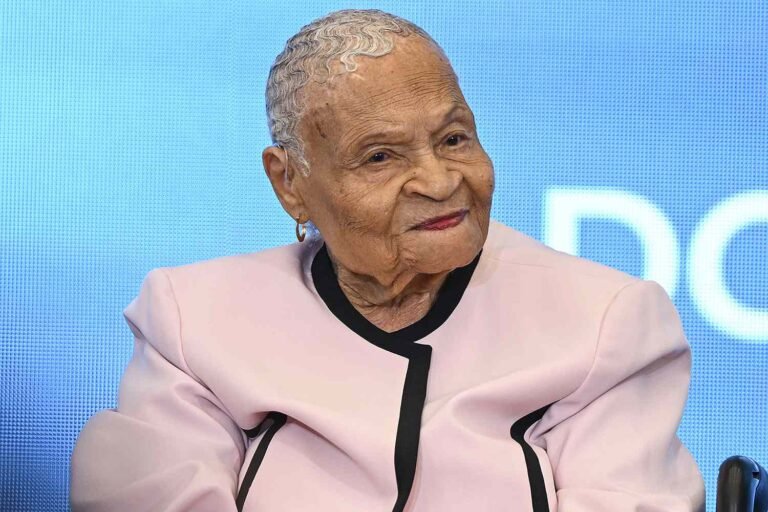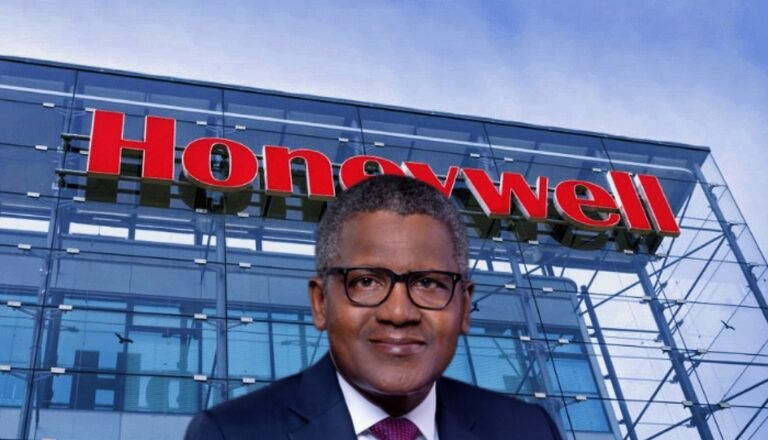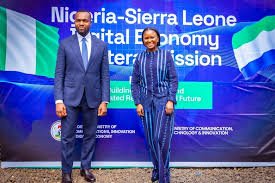Okechukwu Okey Enelamah is the founder and executive chairman of African Capital Alliance, a pioneering private equity and investment firm with over $1.2 billion in assets under his management.
Under his leadership, ACA has delivered landmark deals, including the legendary MTN Nigeria investment, one of the most successful private equity deals in African history. MTN was capitalized with $400 million in Nigeria to start, $285 million to pay the license, $125 million basically to run the business with debt put on that.
He also served as Nigeria’s minister of industry, trade and investment, driving billion-dollar industrial initiatives and shaping economic policy at the highest levels. He partnered with titans like Dick Kramer, Chief Ernest Shonekan, Pascal Dozie and Mohamed Mo to launch ACA.
Early Days in Enugu
“Then we moved back to Enugu. But then from Enugu, I went to atown called Uzuakoli, which is where you have one of the famous sort of missionary schools called Methodist College Uzuakoli.
“From there I went to government college, Umaha, where I met Chijioke Emole , for instance, who is Eche’s dad. You know, and I say that just to say that when you come from the ground up, you are really African.”
Pivot From Medicine Into Finance World
“I saw all the opportunities that the world provided, particularly in the world of finance, which is what I decided to do at great cost, by the way, because I started life as a doctor, but I decided that finance was the thing.
“If you ask me why, I can’t give you a rational reason until today, but I do think there’s such a thing as having a passion for something or maybe even a calling, I felt I’m called to finance. So anyway, I went there and did a bit of investment banking, but there was a pull to Africa, and I have no regrets, despite the ups and downs.
The African Pull
Speaking as a guest on the Afropolitan Podcast, he notes part of what fuelled his passion was this pull to Africa and a burning passion to put Africa at par with other continents.
“That pull was about the fact that Africa was still undiscovered and I love the idea that you can do in Africa what has been done elsewhere and do it well in Africa without cutting corners. So for me, the idea was like this world of finance that was exploding in Asia at the time, why can’t it explode in Africa?
“so I zeroed into finance and I came back specifically to do finance in Africa. I did start with South Africa though, because South Africa was more mature, more ready, so we first brought U.S. capital to South Africa under Nelson Mandela’s time or during Nelson Mandela’s time, 1994-1996 and that then opened up the world to Africa and opened Africa to the world.
“The next was Nigeria, I moved away from Nigeria and I’m here in Boston studying, but I still want to go back? My season was early 90s. So I went there 92 to 94. At that time, Asia was hot. In Japan, it was hot. Africa, less so.”
A conversation with black American called Professor Linda Hill, one of the top professors that Harvard Business School solidified the desire to put Africa on the map.
“She asked us to write down our dream and my dream was like, I wanted to come back to Africa, build a great business, hopefully in the world of finance and give back to society and be part of an African success story.”
ACA Origin
African Capital Alliance (ACA) eventually entered into Nigeria as the country’s first major private equity fund with backing from Dick Kramer, Chief Ernest Shonekan, Pascal Dozie, and Mohammed Mo during military rule under President Sani Abacha.
Okechukwu attributes this earlier success in convincing these bigwigs to back the initiative to relationships, partnerships and mentoring.
“My mentor was my boss, Arthur Anderson. When I left the world of medicine, which I trained in university. I trained as a medical doctor and we were all very young.
“I thought the world would be very rosy, but everyone had to figure out what to do after school. And I figured out that medicine was not what I really wanted to do after school.
“I was fortunate to land in Arthur Anderson, Arthur Anderson today is represented by KPMG professional services in Nigeria and West Africa. But back then it was one of the leading accounting firms from the US, but it was caught in the Enron scandal which led to its demise.”
“I got a mentor in the managing partner of the firm called Dick Kramer, Richard L. Kramer, or Dick Kramer for short, an American who came to set up Arthur Anderson in 1978 in Nigeria and really mentored a lot of Nigerians I have a lot of respect for him. He’s no longer, he passed away in 2022″
The Nigerian Journey
The firm’s entry into Nigeria situation came through relationships and mentoring as well as sheer fortune.
“Dick Kramer invited me with my partner that I mentioned earlier, Thomas Barry, who I had worked with in South Africa to attract the U.S. capital to visit. So we came in April, 1997.
“When we came to visit, he then invited Chief Ernest Shonekan, Pascal Dozie, and Muhamed Hayatudin, who were already people he was sort of close to. They were part of what was called Vision 2010 at the time, which was a visioning process for a new Nigeria post – military
“So it was in that context that I met with them, with my partner, and we struck a bond together, we got along very well and we said, yes, the environment is difficult, but why don’t we at least begin to envision what it might look like to attract capital to Nigeria?”
This question started the massive investments in Nigeria which culminated in the MTN Nigeria deal.
MTN Nigeria Financing Deal
The MTN Nigeria deal provided 47x return on fund one, making it potentially the greatest Private Equity investment in African history. MTN Nigeria hit 12 million subscribers way above the projected 400,000 lines max
Speaking on that deal, Okechukwu Enelamah said “The investment thesis of the firm, of African Capital Alliance, was that it was possible with deregulation for the private sector to do very well in Nigeria and the rest of Africa.
“When under President Obasanjo, I think it was 2003 or so, he decided to deregulate the telecoms sector by awarding what they call digital mobile licenses and we saw the opportunity. In fact, our first step was to work with Mo Ibrahim.
“Mo Ibrahim is a legend in Africa. He owned a company called Celtel that had been successful in other markets. So we went and persuaded him, He was interested in Nigeria as well, but wasn’t sure how to play it.
‘He actually did bid for the license, but based on their models they stopped at 250 million. The model, because it was an auction for the licenses, the three available licenses, they reserved one for NITEL or the government utility. And so they had to bid till there were only three left.
“So at $250 million, Celtel dropped out, but declared at $285 million. The license were eventually sold for $285 million US each. Fortunately for us, Pascal Dozie was part of the group of people backing MTN.
MTN’s Strategy
“MTN decided to use a different strategy, Celtel partnered with us, MTN partnered with prominent Nigerians from each geopolitical zone, or major language group, or tribe, or part of Nigeria.
“Pascal was already a partner of African Capital Alliance, we were doing Celtel, he was doing MTN, once we dropped out, we then agreed that it was better to combine first, because the amount of capital required was a lot and so we then proposed to the Nigerian investor group that let’s provide the institutional backing and the investment banking, investment advisory support they would need both to raise the capital, because capital was going to be tens of millions of dollars at a minimum.
“We played a critical role in mobilizing the local investor group and in partnering with MTN to show them the layer of the land and how to walk through Nigeria. And MTN itself ultimately turned out to be a great partner.”
Lessons For Other Private Equity Firms
Okechukwu Enelamah notes the success of any private equity firm is based on track record and good demonstrable management.
It also involves having an investor group or investors who are interested in investing in Africa. “You have to persuade them to do Africa, then persuade them to do private capital, then persuade them to do venture capital or private equity, then persuade them to back you.” He concluded.
























